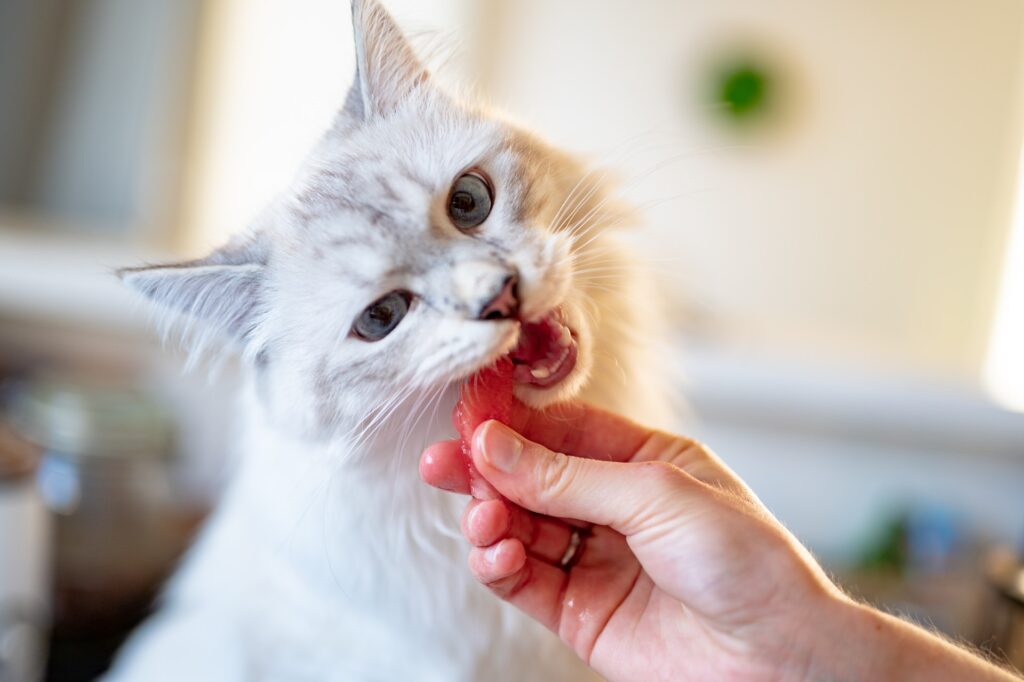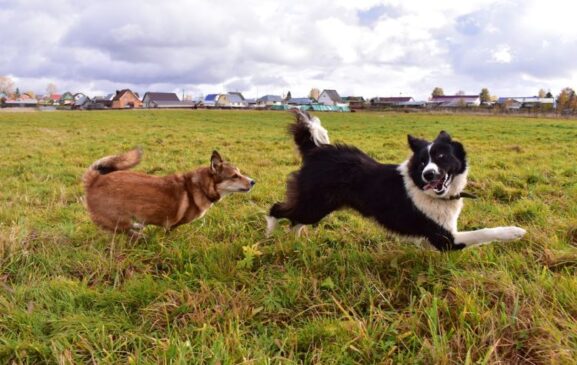The Ethical Pet Plate: Considering Vegan Diets for Dogs & Cats
Before diving into the pros and cons of a vegan diet for cats and dogs, it’s important to note that dogs are omnivores, which means they can obtain nutrients from both plant and animal sources, while cats are obligate carnivores, meaning their diet primarily consists of meat. When considering a vegan diet for pets, it’s crucial to address their specific nutritional needs.
Pros of a Vegan Diet for Dogs:
- Ethical Considerations: Many people choose a vegan diet for their dogs due to ethical reasons, as it aligns with their own principles and beliefs about not using animal products.
- Reduced Environmental Impact: Plant-based diets have a lower carbon footprint compared to diets that include meat, so feeding dogs vegan food can reduce their environmental impact.
- Potential Allergies or Sensitivities: Some dogs have allergies or sensitivities to certain animal-based proteins, and a well-balanced vegan diet may alleviate these issues.
- Weight Management: Vegan diets can be lower in calories and fat, making them suitable for dogs that need to manage their weight.
- Healthy Ingredients: High-quality vegan dog food can contain wholesome ingredients like grains, legumes, vegetables, and fruits, providing a good source of vitamins and minerals.
Cons of a Vegan Diet for Dogs:
- Nutritional Imbalance: Dogs have specific dietary requirements, including essential amino acids, vitamins, and minerals, which can be challenging to fulfill solely with plant-based ingredients.
- Taurine and L-carnitine Deficiency: Taurine and L-carnitine are crucial nutrients for dogs and are primarily found in animal-based products. A lack of these nutrients in a vegan diet can lead to serious health issues.
- Digestive Issues: Some dogs may have difficulty digesting certain plant-based ingredients, leading to gastrointestinal problems.
- Risk of Dilated Cardiomyopathy (DCM): Certain studies have suggested a potential link between grain-free and legume-rich diets, including some vegan diets, and an increased risk of DCM in dogs. More research is needed to fully understand this association.

Pros of a Vegan Diet for Cats:
It’s important to note that there are very few, if any, legitimate pros of a vegan diet for cats, as they are obligate carnivores and have specific dietary requirements that can only be adequately met through animal-based proteins.
Cons of a Vegan Diet for Cats:
- Nutritional Inadequacy: Cats require specific nutrients like taurine, arachidonic acid, and vitamin A that are only found in animal tissues. A vegan diet for cats can lead to severe nutritional deficiencies and serious health issues.
- Taurine Deficiency and Blindness: Taurine is essential for cats, and a lack of it in their diet can cause vision problems and even blindness.
- Urinary Tract Health: Cats on vegan diets may be at a higher risk of developing urinary tract issues due to inappropriate pH levels and imbalanced minerals in their urine.
- Digestive Problems: Cats may struggle to digest plant-based proteins efficiently, leading to digestive problems and malabsorption of nutrients.
- Long-term Health Risks: Feeding cats a vegan diet can lead to long-term health issues, organ damage, and a shortened lifespan.
While a vegan diet can be a personal choice for some dog owners, it is not recommended for cats due to their strict carnivorous dietary requirements. For dogs, it’s essential to ensure any vegan diet is well-balanced, nutritionally complete, and approved by a veterinarian to avoid potential health risks associated with nutritional deficiencies.
More on this at Plant-Based Dog Food and Vegan Treats for Cats: A Guide for Caring Pet Parents

20 healthy vegan proteins for dogs
While dogs are omnivores and can obtain nutrients from both plant and animal sources, it’s crucial to ensure that their diet is well-balanced and provides all the essential nutrients they need. Here are 20 healthy vegan proteins for dogs, along with clarifications on whether they are best consumed cooked or raw:
- Lentils: Cooked – Lentils are rich in protein, fiber, and various vitamins, making them a nutritious addition to a dog’s diet when cooked to improve digestibility.
- Chickpeas (Garbanzo Beans): Cooked – Chickpeas are high in protein, iron, and folate, and cooking helps improve their digestibility.
- Black Beans: Cooked – Black beans offer protein, fiber, and essential minerals and are better for dogs when cooked.
- Green Peas: Cooked – Green peas are a good source of protein, vitamins, and minerals, and they are easier for dogs to digest when cooked.
- Kidney Beans: Cooked – Kidney beans provide protein, iron, and B vitamins, and they should be cooked to avoid potential toxins present in raw beans.
- Pinto Beans: Cooked – Pinto beans are rich in protein, iron, and manganese and should be cooked to enhance their nutritional benefits.
- Soybeans (Edamame): Cooked – Soybeans contain complete protein and are better for dogs when cooked to reduce the presence of certain natural toxins.
- Quinoa: Cooked – Quinoa is a complete protein and should be cooked to make it easier for dogs to digest.
- Hemp Seeds: Raw – Hemp seeds are a source of protein, healthy fats, and omega-3 fatty acids, and they can be given raw or slightly toasted.
- Chia Seeds: Raw – Chia seeds offer protein, fiber, and omega-3 fatty acids and can be given raw or soaked in water.
- Flaxseeds: Raw – Flaxseeds are high in omega-3 fatty acids, but they are more beneficial when ground before feeding to dogs.
- Pumpkin Seeds: Raw – Pumpkin seeds are a source of protein, fiber, and essential minerals and can be given raw or lightly roasted.
- Sunflower Seeds: Raw – Sunflower seeds are a protein-rich snack for dogs when given in moderation.
- Almonds (Ground or Almond Butter): Raw – Almonds are a good source of protein and healthy fats, but they must be ground or given as almond butter to avoid choking hazards.
- Peanuts (Unsalted and Unflavored): Raw – Peanuts provide protein and healthy fats but should be given in moderation and without added salt or flavorings.
- Seitan (Wheat Gluten): Cooked – Seitan is a protein-rich meat substitute made from wheat gluten and is suitable for dogs when cooked.
- Tofu: Cooked – Tofu offers protein and other nutrients, and it’s best for dogs when cooked and served in moderation.
- Tempeh: Cooked – Tempeh is a fermented soy product high in protein, and it’s better for dogs when cooked and given occasionally.
- Brown Rice: Cooked – Brown rice provides energy and some protein and should be cooked to improve digestibility for dogs.
- Oats: Cooked – Oats are a good source of protein and fiber and should be cooked before feeding to dogs.
Remember that while these vegan proteins can be included in a dog’s diet, it’s crucial to balance them with other essential nutrients and consult with a veterinarian to ensure the overall diet meets the specific needs of your dog. Additionally, certain foods, even plant-based ones, might not agree with every dog’s digestive system, so it’s essential to observe your pet’s reaction to new foods and make adjustments as needed.

Health Considerations for Cats and Vegan Diets:
As pet parents, we understand the importance of providing the best care for our feline friends. When it comes to considering a vegan diet for cats, we must approach the topic with utmost care and attention. Cats have unique dietary needs, being obligate carnivores, which means their bodies are designed to thrive on a diet primarily consisting of animal-based proteins.
The Obligate Carnivore Dilemma:
Cats require specific nutrients like taurine and arachidonic acid that are crucial for their health and can only be obtained through animal-based sources. A vegan diet for cats may not provide these essential nutrients in adequate amounts, leading to severe health issues such as vision problems, heart conditions, and overall malnutrition.
The Balanced Approach: Vegan Snacks for Cats:
While a full vegan diet is not recommended for cats, there are ways to incorporate plant-based options into their treat time! Vegan snacks for cats can provide a variety of flavors and textures to enrich their culinary experience. Consider offering dehydrated sweet potato or catnip treats, which can be paw-sitively delightful and provide a fun way to introduce plant-based snacks into their diet.
Expert Advice Matters:
Remember, every cat is unique, and their nutritional needs can vary based on factors such as age, health conditions, and individual preferences. If you’re considering introducing any dietary changes or vegan snacks for your feline companion, consult with a veterinarian who is well-versed in feline nutrition. They can offer personalized guidance and ensure your cat’s diet remains nutritionally complete and balanced.
So, as we venture into the realm of vegan diets for our pets, it’s crucial to consider the specific dietary requirements of cats. While dogs can adapt to well-planned vegan diets, cats need a diet that aligns with their obligate carnivore nature. Instead, let’s focus on providing our feline friends with occasional plant-based treats like dehydrated sweet potatoes or catnip delights. By combining love, expert advice, and mindful choices, we can continue nurturing our pets with the utmost care and devotion they deserve.
Agree and disagree
The debate surrounding vegan diets for pets has become a polarizing topic, with strong opinions on both sides. While many believe that plant-based diets can be beneficial for dogs and cats, others vehemently argue that such diets are nutritionally inadequate and potentially harmful. In this thought-provoking article, we delve into the controversies and consider examples that challenge the dominant narrative surrounding vegan diets for pets.
The dominant narrative in favor of vegan diets for pets revolves around ethical, environmental, and health considerations. Advocates argue that plant-based diets align with their own ethical beliefs regarding animal welfare. They claim that by feeding pets vegan food, they are promoting a more compassionate lifestyle and reducing the demand for animal agriculture. Additionally, proponents assert that plant-based diets can have a lower environmental impact, contributing to a more sustainable future for the planet.
Furthermore, some individuals report positive experiences with vegan diets for their pets, citing improved coat condition, increased energy levels, and better weight management. These anecdotes often provide the basis for advocating vegan pet diets.
Challenging Assumptions:
- Nutritional Adequacy: One of the most significant challenges to the pro-vegan narrative is the question of nutritional adequacy. Dogs and cats have different dietary requirements, and while dogs are more adaptable to omnivorous diets, cats are obligate carnivores with specific nutritional needs. Critics argue that it is difficult, if not impossible, to provide all the essential nutrients these animals require solely through plant-based sources. Nutrient deficiencies, particularly taurine and arachidonic acid in cats, can lead to severe health issues, including blindness and heart problems.
- Ethical Considerations: On the other hand, some people question the ethics of imposing a vegan diet on carnivorous animals. While humans have the autonomy to make dietary choices, pets rely on their owners for sustenance. Does feeding them a vegan diet align with their natural needs and behaviors, or does it reflect human preferences being imposed on animals? The debate raises important questions about the ethical implications of vegan pet diets.
- Environmental Impact: While proponents argue that vegan pet diets reduce the carbon footprint, critics counter that the environmental impact of pet food is only a small fraction of the overall environmental challenges. Focusing on pet diets alone may divert attention from larger issues that require collective efforts to address.
- Long-Term Health Risks: While anecdotal evidence may support the benefits of vegan diets for pets in the short term, there is a lack of long-term studies on the impact of such diets. As pets age, nutritional deficiencies may manifest in various health issues. More research is needed to ascertain the long-term consequences of vegan diets on pet health and well-being.
The debate over whether dogs and cats can thrive on vegan diets challenges assumptions on multiple fronts. While some owners advocate for ethical, environmental, and health reasons, critics raise concerns about the nutritional adequacy, ethical implications, and potential long-term health risks of such diets.
As responsible pet parents, it is essential to consider all perspectives and consult with veterinarians to make informed decisions about our pets’ diets. Striking a balance between ethical values, environmental concerns, and the nutritional needs of our beloved companions remains an ongoing challenge.
Ultimately, the question of whether vegan pet diets are appropriate remains controversial, and it is up to each individual pet owner to critically evaluate the available evidence and make choices that prioritize the health and well-being of their furry companions. Consulting a vegan dog nutritionist will provide you with a plethora of knowledge to help you make the right choices for your pets’s needs.



